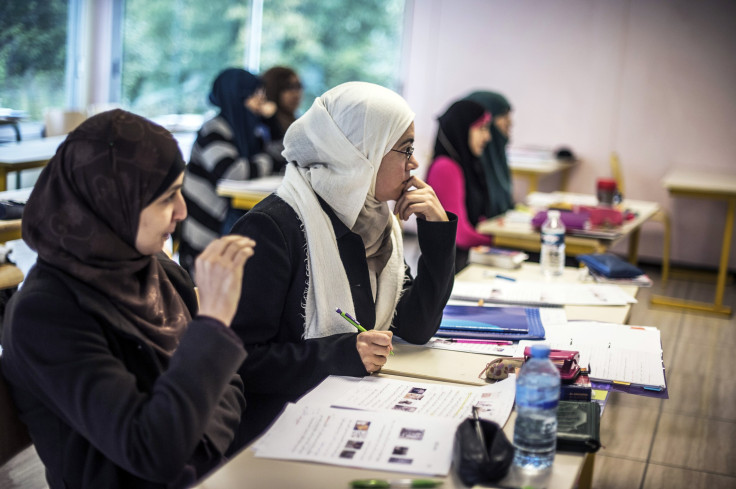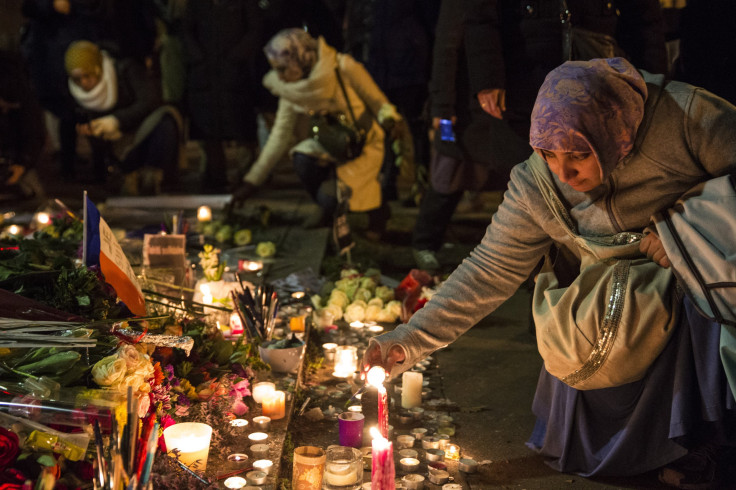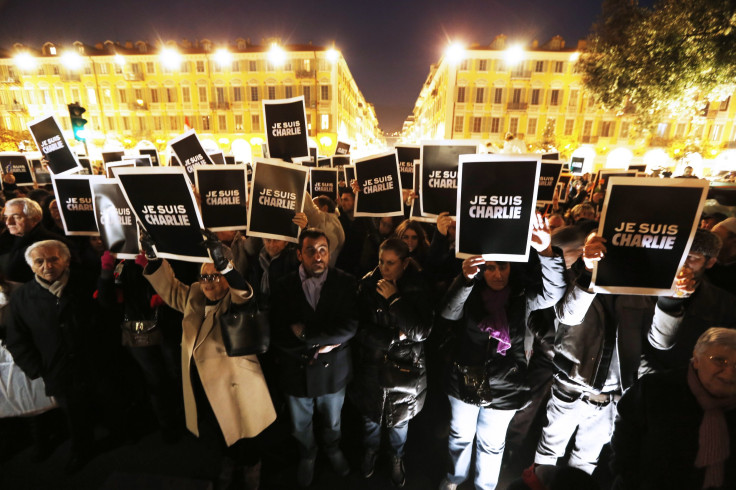France Secularism Controversy: Court Rules In Favor Of Mayor's Plan To Eliminate Non-Pork Meals For Muslim Students, Causes Uproar

Reda Valprim has built a full life for himself and his family in the small southeastern city of Chalon-sur-Saone since moving to France from Morocco almost 20 years ago. Valprim, 35, a halal butcher and volunteer at his local mosque, said he supports the religious neutrality of the French state, but fears the idea has been contorted.
“In the name of secularism, people have done all sorts of things,” he said. “They misuse this term to manipulate their electorate and to serve their interests."
A recent plan from the mayor of Chalon to eliminate non-pork options in school cafeterias has rekindled an ongoing debate in France over how best to maintain the nation's history of secularism while also allowing people the freedom to practice their religion. Fears of Muslim extremism have increased since Islamic radicals claimed the lives of 12 people in January during an attack at the offices of Charlie Hedbo magazine in Paris. Government authorities and concerned citizens alike have tried to counter concerns by educating citizens about Islam beyond extremism, while right-wing politicians continue to fuel anti-Muslim sentiment with measures such as Chalon's school lunch policy, critics said.
“As soon as you say the word ‘Islam’ or ‘halal,’ it’s as if people see a bomb instead of your face,” said Valprim.

France has a long history of secularism that arguably stretches back to the French Revolution, when rebels destroyed the monarchy and established a republic under the motto “Liberty, Equality, Fraternity.” The slogan made no reference to religion.
Laws of “laïcité,” best translated as “secularism,” have existed since the 1800s in France and are deeply ingrained in the cultural understanding of education.
The controversy in Chalon began in March when the mayor, Gilles Platret, decreed that public schools in his district would no longer offer a non-pork alternative at school lunches. French public schools have offered this option since 1984 because of large Muslim and Jewish populations. A French court ruled Thursday in favor of the proposal. The law still needs to be approved by the local government, though many supporters have seen the court's decision as an early victory.
This decision “marginalizes [Muslim kids]," said Valprim. "The other children will start to ask themselves: Why isn’t my schoolmate eating his lunch?”
Muslim leaders across France have criticized the decision. “[It is] a provocation,” said Abdallah Zekri of the French Council of the Muslim Faith. He said the decree would only continue to heighten discord in France between Muslims and non-Muslims.
The mayor in Chalon lauded the court's decision on Twitter, calling it a "victory for secularism."
Le Trib. adminis. vient de rejeter le recours dirigé contre la fin des menus de substitution à Chalon. Première victoire pour la #laïcité !
— Gilles PLATRET (@gillesplatret) August 13, 2015The mayor’s plan to eliminate non-pork alternatives is not the first piece of legislation to limit freedom of expression in public schools. A 2010 federal law forbade students from wearing any “conspicuous sign” of religion. The law came under similar heated debate in France between those who adamantly believed in secularism and those who felt it was specifically targeted at Muslim girls who wore headscarves.
Efforts have been made by French educational authorities to institute programs teaching young children about Islam in order to prevent misconceptions. A group of Muslim mothers in France have launched a campaign to teach young children about diversity of religion.
Secular laws forbid census-takers from asking about religion, but experts estimate that around 4.7 million Muslims and half a million Jews live in France, making it the European nation with the largest populations of both groups.
Chalon in particular has a large Muslim community, and the mayor estimated 40 percent of the students in the school district ate no meat at school because it was not prepared halal, or in accordance with Shariah law. Critics have suggested that Muslims simply pack their own lunch, but the school forbids this practice for hygiene reasons. In a city of 50,000 people, there are four mosques to accommodate the Muslim population.
When the mayor first ran for office, he courted the Muslim population, coming to Muslim homes, businesses and mosques, according to Valprim. “He leaned on the support of the Muslim population, he was elected in large part thanks to Muslims,” said Valprim. The mayor launched the school lunch initiative a couple of years after his first election, hoping to garner support from a growing far-right electorate.

The Charlie Hebdo attack in Paris heightened France's long debate over secularism, shifting the conversation from philosophical discussions of freedom of expression to imminent fears of terrorism and violence.
The attack occurred in January when two brothers, both Muslim, stormed the offices of the satirical weekly, killing 12 and wounding 11 others. In a three-day manhunt that eventually ended in their death, Chérif and Saïd Kouachi murdered several policeman and civilians.
The Charlie Hebdo massacre was the worst domestic attack in decades, and it shocked not only France but all of Europe. There was an outcry against the rise of Muslim extremism, and many right-wing leaders, such as Marine Le Pen, president of the National Front, the third-largest political party in France, directed the public's anger toward immigrants and Muslims more generally.
Following the Charlie Hebdo attack, many Muslims in France said they felt more animosity toward them than they had before. Valprim said one of his son’s friends was called a “terrorist” by his classmate. The boy was 8 year old.
The limitations on non-pork alternatives would be an issue for Jewish students who keep kosher and have limitations on consumption of pork. There are very few Jews in Chalon, not nearly as many as in Perpignan or Nice, where similar legislation has been discussed.
A Jewish community leader in nearby Dijon said many Jewish people have had an easier time integrating into French society because their differences are less visible, especially for those who are not orthodox. "There have always been Jews in France," said Israel Cemachovic, the president of the Jewish Religious Association in Dijon.
Many French Jews have stopped wearing yarmulkes or earlocks and have been able to assimilate more easily than Muslims. While Cemachovic said his children have been treated the same as other kids in school, he recalled that sometimes classmates have made offhand anti-Semitic remarks. One time, he said, when his child was arguing with another student, the classmate responded, “Don’t be such a Jew about it."
© Copyright IBTimes 2024. All rights reserved.






















